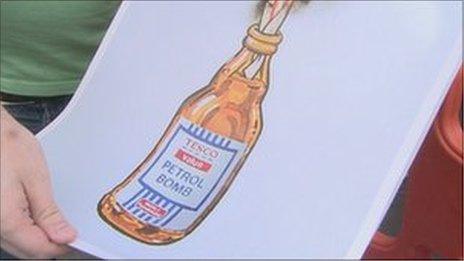Bristol 'riot' Tesco gets alcohol licence a decade later
- Published
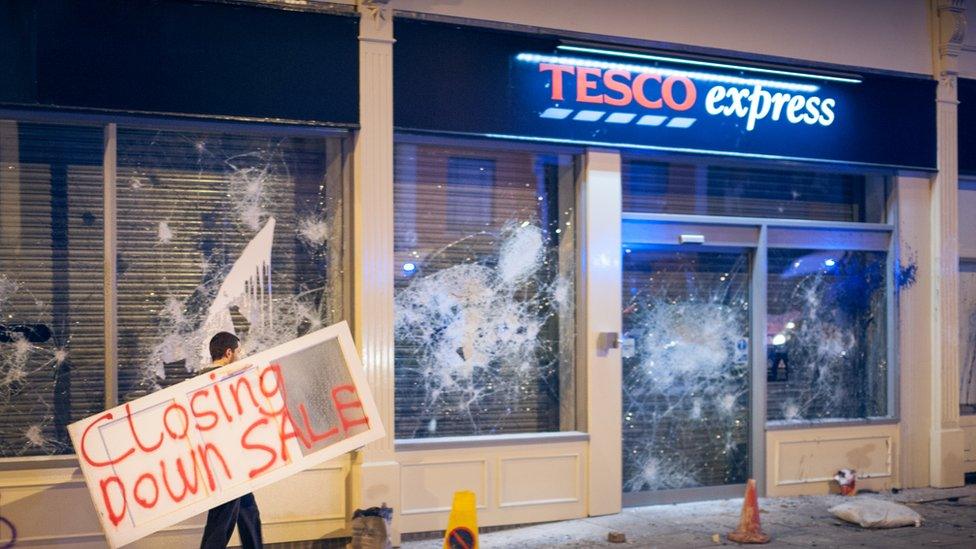
The store was badly damaged during the riots
A supermarket at the centre of two nights of rioting 10 years ago has been granted a licence to sell alcohol.
The Tesco Express on Stokes Croft in Bristol was originally refused an alcohol licence following residents' concerns about street drinking.
Violence broke out in April 2011 after a police raid on a nearby squat that was occupied by anti-Tesco campaigners.
A Bristol City Council licensing committee granted permission but only between 9am and 9pm.
Other conditions, which had been agreed with Avon and Somerset Police prior to the meeting, include no beer or cider stronger than 5.5% being sold unless police agree, and no alcohol to be displayed in the windows or close to the entrance.
Tesco spokesman Jeremy Bark told councillors that one of the reasons for the licence application was that, during lockdown, customers who "didn't want to visit lots of different shops" had approached the store to ask if they could start selling alcohol.
He said he accepted that some people would still boycott the store, but that there was a "loyal" customer base locally.
People on Stokes Croft, well known for its street art and independent businesses, protested against , externalthe opening of the store and continued to lobby against it after the riots.
Campaigners even took the decision to allow planning permission for the store to the High Court.
Two nights of violence broke out on 21 April that year after police raided a squat known as Telepathic Heights. Officers believed petrol bombs intended for the Tesco shop were being made inside.
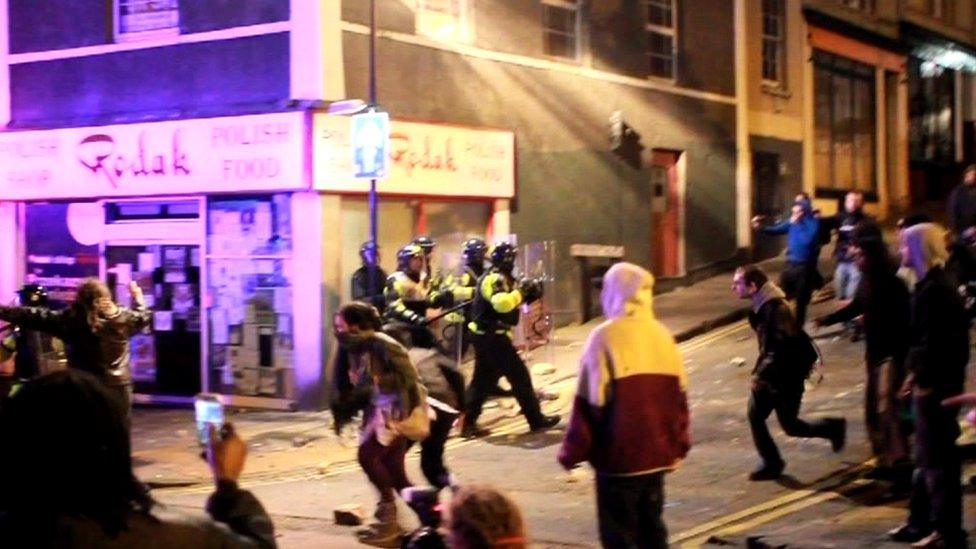
Police and protesters clashed in the area in 2011
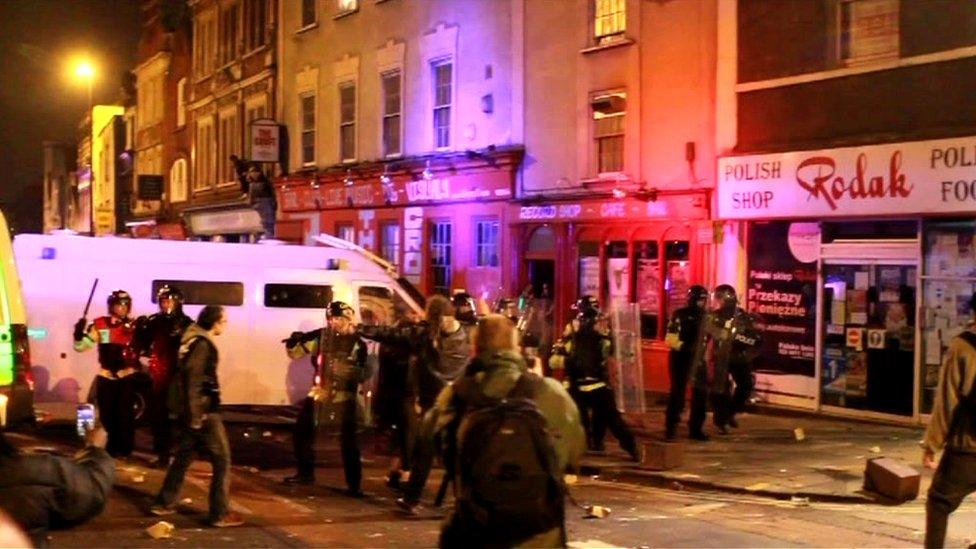
The rioting led to several court cases
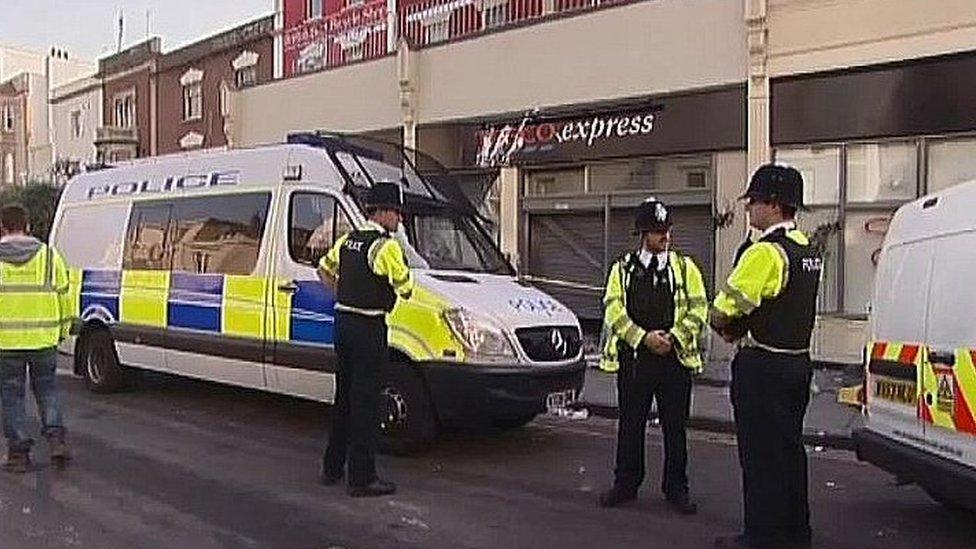
Police had to be called in from neighbouring areas to deal with the rioting
Eight officers were injured and several arrests were made following clashes between around 300 protestors and around 160 police.
A third night of rioting followed a week later, after a further peaceful protest against the presence of Tesco.
The store and other nearby shops were badly damaged by rocks and missiles. Tesco re-opened a month later.
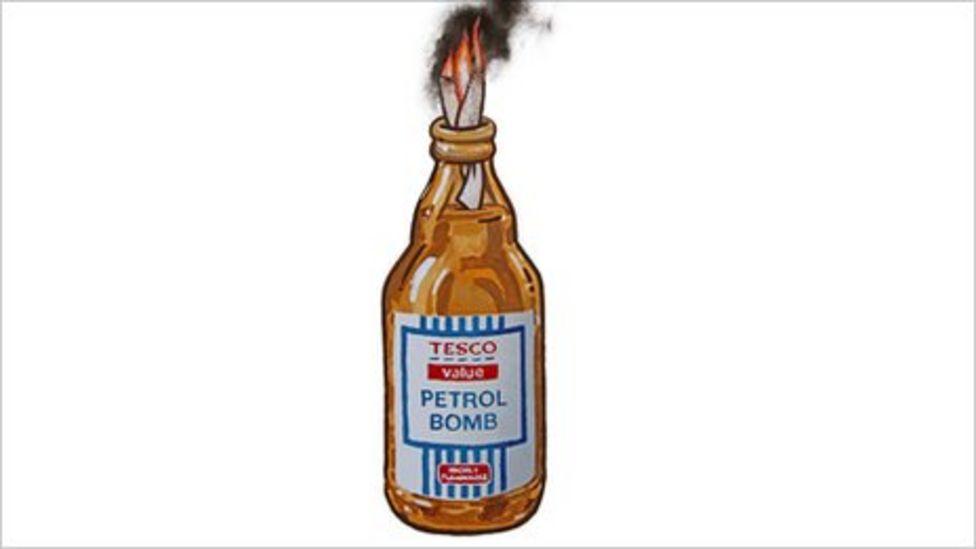
The Tesco riots were commemorated by Bristol artist Banksy
Bristol artist Banksy produced a "souvenir poster" marking the riots. The proceeds from the limited edition print were given the local groups including the People's Republic of Stokes Croft community organisation.
Chris Chalkley of The Peoples' Republic of Stokes Croft said the community fought to keep Tesco out of the area ten years ago "in an attempt to protect its independent nature from the incursion of corporate power".
He said the fact that the shop had long been refused an alcohol licence was the "most significant concession that the community campaign achieved", and that the reversal of that decision was "the final snub".
"It comes as no surprise that, ten years later, Tesco have succeeded in reversing the decision. The battle was always a David v Goliath affair.
"Whilst there is a certain sadness that Tesco have apparently achieved their ends, the No-Tesco campaign did in part help to sensitise the city to the dangers of corporate monoculture."
- Published22 April 2011
- Published24 May 2011
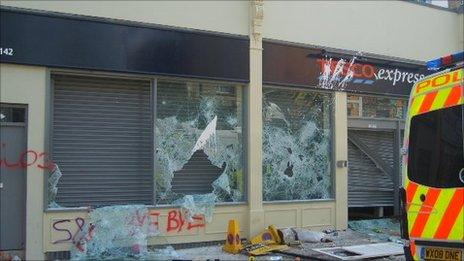
- Published4 May 2011
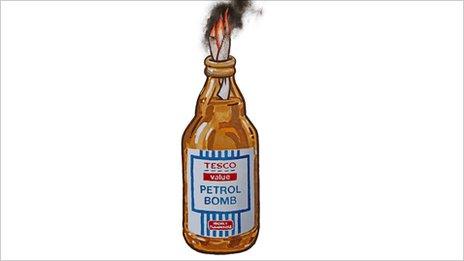
- Published7 May 2011
